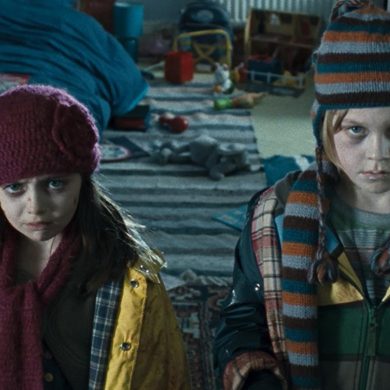Two months ago, a movie was released in which a Hollywood A-lister transformed himself to deliver a performance better than the movie in which he starred. I’m talking about Jake Gyllenhaal in Southpaw. He was terrific and the movie was all right, but he single-handedly made it better by his mere presence. The same can now be said for Johnny Depp in Black Mass. If comparing the two performances, though, I’d have to give the edge to Gyllenhaal. His transformation was natural; Depp’s was done with makeup.
In fact, it took an entire team of at least 19 artists and technicians to turn Depp into notorious Boston gangster James “Whitey” Bulger for Black Mass. Besides makeup designers and artists, there were mold supervisors, lab assistants, hair stylists and contact lens technicians. I never quite got past marveling at their achievement when watching the movie and Depp didn’t quite make me forget that it was him underneath.
However, I don’t say that to discount what the actor has accomplished in the role. It’s a remarkably restrained dramatic performance different for the normally flamboyant actor known for his exaggerated comic roles. Here, he reigns in the theatrics and uses his voice, posture and movements to quietly become a character who is extreme in other ways. It’s the anger and sudden outbursts of violence that Depp masters, but not as much a smoldering intensity that might precede them.
The problem is, in the screenplay by Mark Mallouk (first time writer) and Jez Butterworth (Edge of Tomorrow, Get On Up), based on the book by Dick Lehr and Gerard O’Neill, Bulger isn’t the most interesting character. We never learn much about him, other than frequent references to growing up on the south side of Boston. More complex is the character of John Connolly (Joel Edgerton), his childhood buddy who eventually worked on the other side of the law in the FBI.
Actually, it’s the relationship between the two that is more interesting than either character on his own, as the subtitle of the book indicates: “The True Story of an Unholy Alliance Between the FBI and the Irish Mob.” Connolly basically sets up Bulger to be an informer, but it’s a mutually beneficial arrangement. While Connolly gets kudos for taking down the Italian mafia on the north side, Bulger gets rid of the competition.
As the story progresses, though, the arrangement becomes more beneficial for Bulger. Connolly argues with his superiors to maintain the relationship as Bulger becomes more and more of a kingpin. Is it worth it to make a deal with the devil? Is it really a matter of choosing the lesser of two evils or is there a point where the FBI is in essence working for Bulger? Black Mass lets us decide; it remains objective about making a judgment.
This is strength of the movie: making the audience think about it to draw their own conclusions. As far as entertainment, though, there are some weaknesses. Directed by Scott Cooper (Crazy Heart, Out of the Furnace), it runs slow, seeming long at just over two hours. Heavier on drama than action, there are only a couple of scenes that come close to conveying the mystery or excitement (fun?) of earlier gangster hits, such as Goodfellas or The Departed.
Whether or not I recommend Black Mass depends on what you want to get out of it. As an intriguing story that might cause you to learn more about the facts by reading the book or researching the history, it works. On the other hand, as a compelling piece of entertainment that leaves you talking about it for days to come, it doesn’t. Like the relationship between the FBI and Bulger, I’m mixed. I’m not entirely sure whether, in the end, it’s worth it or not. However, in either case, I do respect it.




